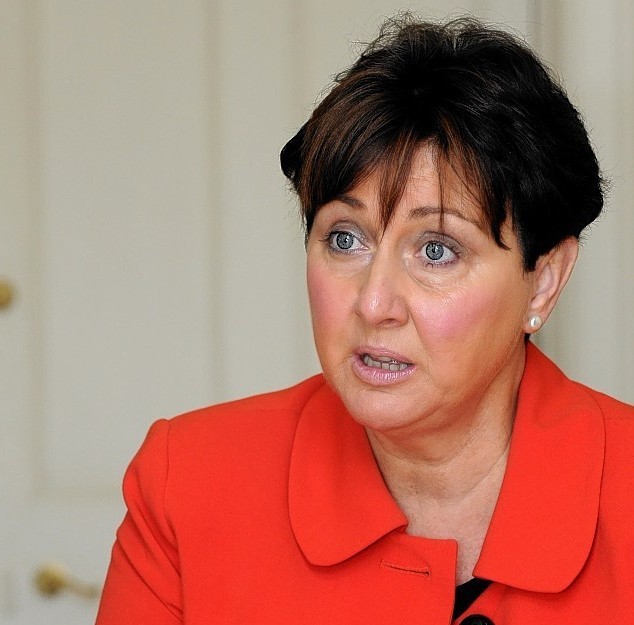A remarkable power struggle at the top of Aberdeen City Council has been laid bare at an inquiry into the conduct of councillors accused of sending “politically contentious” letters to residents in the run-up to the Scottish independence referendum.
The local authority’s former chief executive, Valerie Watts, claimed yesterday that Labour councillors Willie Young and Barney Crockett had ignored her concerns over the controversial note which was sent along with council tax bills last year, telling people the city was “stronger” within the UK.
The leaflet went out to 113,000 households in March, just months before Scots were due to vote in the highly-charged referendum.
Mrs Watts, who returned to Aberdeen yesterday to give evidence at the Standards Commission Scotland hearing, told the panel that she and Mr Young, the council’s finance convener, rarely agreed on council matters – and that he would often say to her “don’t take things personally Valerie – it’s just politics”.
She said that despite legal advice being sought about the “contentious” letter, which was relayed to the politicians, it was eventually sent out and she had to take the “unique” step of emailing all 10,000 council employees to explain that there was nothing she could do about it.
The panel is investigating whether Mr Young and Mr Crockett, along with three Labour and two Conservative colleagues – council leader Jenny Laing, Neil Cooney, Ross Grant, Fraser Forsyth and Ross Thomson, broke the councillors’ code of conduct by voting to issue the letter at an urgent business meeting.
Mrs Watts said she always had concerns about the potential backlash that could arise so close to the September vote.
However, in his own evidence, Mr Crockett said he had no recollection of her ever warning him about the consequences – and that he remembered it being a “smooth process” from drafting to printing.
He said informal discussions had touched on what the letter said, but that nothing had been said by Mrs Watts to suggest it might break the rules.
And said the former chief executive had shown no signs of worrying about the situation in the days leading up to the urgent business meeting, claiming the only time she got in touch was when she travelled to Belfast for a job interview and phoned him to ask for a reference.
“If it was me and I was the chief executive and there was something really dangerous happening, I would have been looking at my travel plans more carefully,” he said.
The letter, signed by then leader Mr Crockett, said Aberdeen was “stronger now and will be stronger in the future – economically, politically and socially – as a partner within the United Kingdom”.
It went on to explain that Aberdeen received some of the lowest funding of all local authorities from the Scottish Government.
The note sparked 84 individual complaints from the public.
Alan Cowan, a solicitor representing the Commissioner for Ethical Standards, said he was in no doubt that the letter was encouraging people to vote No.
However, Mr Crockett rejected his claim, saying he would never have risked his political career for an “episodic” matter.
“I have only been a politician for a very short period of time in a very long career and I certainly wouldn’t be endangering my whole reputation on something of episodic importance,” he said.
“I live and die by my reputation for honesty and openness.”
Councillor Crockett said he believed the situation had escalated because the letter was leaked to the press and claimed residents would not have questioned it had they first seen it when it dropped through their letter boxes.
“Had they got it through, it would have had little impact,” he said.
“People have said to me ‘is that it?’
“They didn’t recognise it as political propaganda. They didn’t see the impact of what they had seen in the press.”

